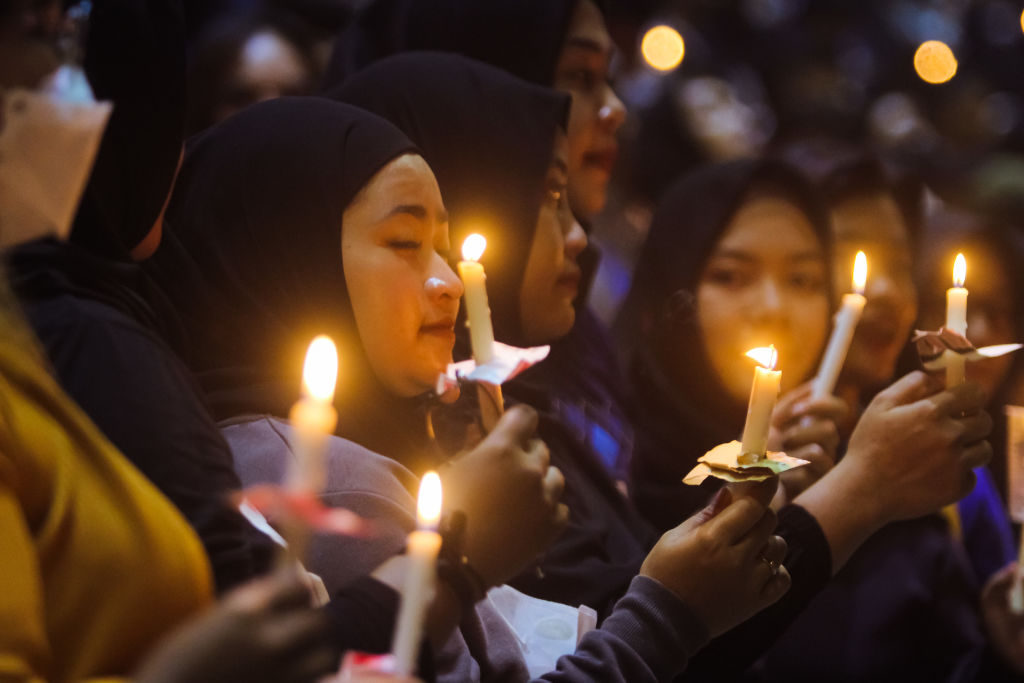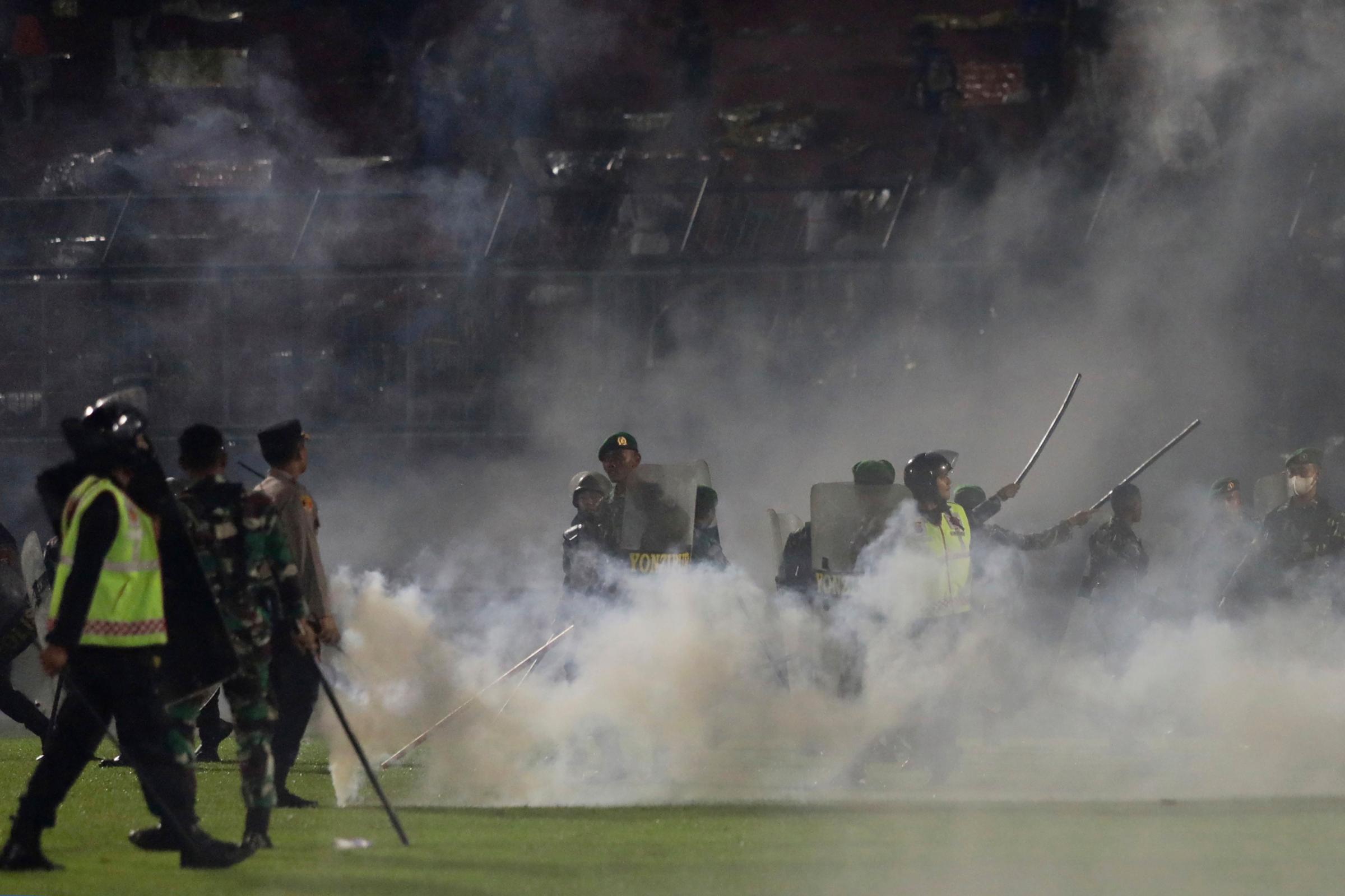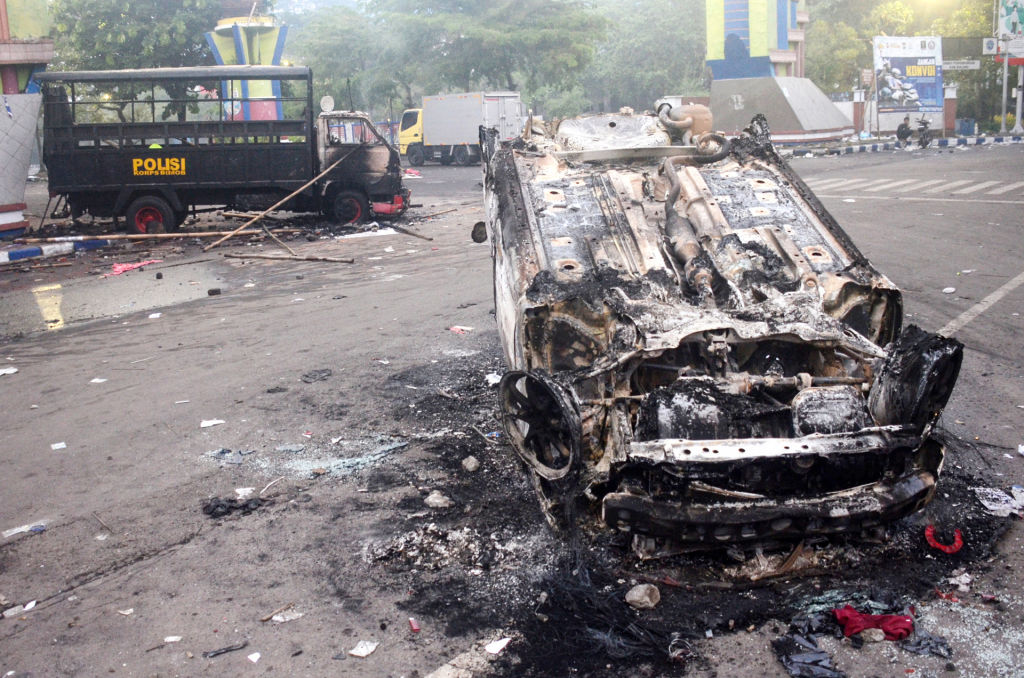
The loss of at least 125 lives at an Indonesian soccer match Saturday has exposed anew the Southeast Asian nation’s troubled history with the sport.
Indonesian soccer has been plagued for decades by inter-club rivalries that, at times, can get deadly. According to data from Indonesian sport watchdog Save Our Soccer, cited by the Associated Press, at least 78 soccer supporters died in Indonesia between 1995 and Saturday’s tragedy at Kanjuruhan Stadium in East Java.
Many more have been hurt. The latest disaster, which took place at a match between soccer clubs Arema FC and Persebaya Surabaya, alone left some 300 people injured.
Indonesia was the first Asian country to join the World Cup, taking part in the 1938 games in France as the Dutch East Indies. Since then, soccer has become the nation’s most popular sport. As many as 52 million Indonesians watch weekend games, Reuters reports.

But issues of corruption and mismanagement have long dogged Indonesian soccer. So has hooliganism and violence, which is so common that some groups of fans travel to games in armored vehicles. Riot police are often deployed during matches between notorious rivals.
Supporters are sometimes banned from traveling to away games. Arema FC and Persebaya Surabaya came to an agreement in 1988 prohibiting opposing supporters from visiting each other’s home stadiums.
Another such rivalry, dating back to 1933, exists between the Persija Jakarta and Persib Bandung clubs. Clashes between their supporters have turned deadly: a mob of Persib Bandung fans killed a Persija Jakarta supporter in 2018.
It’s not only domestic games that have been marred by violence. In a 2019 qualifying match for the 2022 World Cup, supporters of Indonesia’s national team threw projectiles at Malaysian fans in Jakarta, causing the game to be stopped for 10 minutes. Two months later when the same teams met in Kuala Lumpur, at least 41 were arrested after Malaysian fans were hit by flares.
Read More: What to Know About the Stampede at an Indonesian Soccer Match That Left At Least 125 Dead
Dex Glenniza, an Indonesian soccer analyst, says locals view the sport, referred to as football there, as more than a game. For many, it’s a means of “self-actualization,” he says.
“Football fans in Indonesia are dominated by uneducated and poor people so their presence in the stands seems to be an escape from their difficult or ordinary life,” he tells TIME. “For Indonesians, football is everything. Unfortunately, it happens excessively and disproportionately.”
Corruption and mismanagement also bedevil national soccer authorities. Nurhan Halid, the Indonesian Football Association’s (PSSI) chairman was convicted of corruption in 2007 but continued helming the league until 2011, when he was barred from reelection.
FIFA banned Indonesia for almost a year in 2015 after failing to resolve a row between the PSSI and the sports ministry over who manages the sport in the country. Clubs have also reportedly left some players unpaid.

The situation has left many spectators infuriated. Glenniza explains: “Their level of trust is very low [in the] PSSI, league operators, and the police.”
He believes the Kanjuruhan stadium incident was a result of “collective stupidity.”
When Arema fans invaded the pitch after their side lost the game, police fired tear gas to disperse them. Law enforcement officials have defended its use, though FIFA statutes explicitly prohibit the use of “crowd control gas.” The Indonesian Legal Aid Foundation also lambasted what it called an excessive use of force.
It’s not the first time that Indonesian police have to answer to allegations of abuse related to soccer. In 2016, they were accused of killing a 16-year-old Persija supporter they nabbed during a match. Thousands staged a vigil in the wake of the death, calling for an end to police brutality.
Indonesia’s President Joko Widodo has ordered the sports minister, the national police chief, and the soccer federation to look into the Kanjuruhan stadium disaster. The country’s human rights commission has also launched an investigation.
FIFA has not commented on whether this weekend’s tragedy will affect Indonesia’s planned hosting of the U20 World Cup next year. The incident also raises security concerns as Indonesia vies to host the 2023 Asian Cup.
In the meantime, the country is in mourning.
“No one should lose their lives at a football match,” says Amnesty International Indonesia executive director Usman Hamid.
More Must-Reads From TIME
- The 100 Most Influential People of 2024
- How Far Trump Would Go
- Scenes From Pro-Palestinian Encampments Across U.S. Universities
- Saving Seconds Is Better Than Hours
- Why Your Breakfast Should Start with a Vegetable
- 6 Compliments That Land Every Time
- Welcome to the Golden Age of Ryan Gosling
- Want Weekly Recs on What to Watch, Read, and More? Sign Up for Worth Your Time
Contact us at letters@time.com